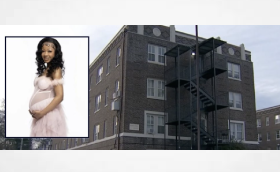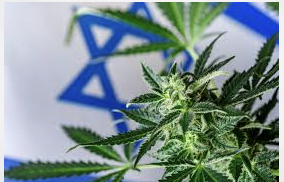Useful article
Legal situation in Germany
In Germany, driving under the influence of cannabis is regulated by several laws. The most important factors for the legal assessment are whether the ability to drive is negatively affected by cannabis use and whether this cannabis use can lead to the endangerment of other road users. In addition, depending on the case, it may be a misdemeanor or a felony, or – in medically justified exceptional cases – have no consequences. In individual cases, the driving license authority may request a specialist medical opinion and an MPU. In particular, this examines whether cannabis use is exclusively in accordance with the medical prescription. Drug-related criminal and traffic conspicuities and diseases relevant to driving suitability are also assessed (9).
Without inability to drive – fine according to § 24a Abs. 2 StVG
In principle, according to Section 24a (2) of the Road Traffic Act (StVG), it is not permitted to drive a vehicle at all while under the influence of cannabis (10). A violation is considered a misdemeanor. There is no equivalent to the per mille limit for cannabis. Evidence of cannabis consumption must be provided in the form of a blood sample. Provided that the driver’s ability to drive was not impaired while driving, driving under the influence of cannabis is an administrative offense that generally results in a fine of €500 and 2 points in the central traffic register in Flensburg for the first offense.
Impaired driving – offense according to § 316 StGB
The situation is different if the driver is unfit to drive, i.e. unable to drive the vehicle safely. Impaired driving is determined, for example, by conspicuous driving behavior.
“(1) Any person who drives a vehicle in traffic (sections 315 to 315e) while unable to drive the vehicle safely as a result of consuming alcoholic beverages or other intoxicating substances shall be punished by imprisonment for not more than one year or a fine if the offense is not punishable under section 315a or section 315c.”(11)
In this case, the driver commits a criminal offense that can be punished with a fine or even imprisonment for up to one year. In addition, according to § 69 StGB, the driver’s license is usually revoked. In the case of a first offense, the fine is approximately 1 month’s salary and the revocation of the driver’s license is for approximately 1 year.
Impaired driving + endangering road traffic – criminal offense according to § 315c StGB (German Criminal Code)
The consequences are particularly serious if the driver is not only unfit to drive due to cannabis consumption, but also endangers road traffic. This does not even require an accident, but the causing of a dangerous traffic situation, a so-called “near-accident”, is sufficient. In this case, the offender is liable to a fine or imprisonment of up to 5 years, plus the suspension of the driver’s license (12).
Driving with cannabis patients
Cannabis affects the human body differently than alcohol. THC can be present in the blood for up to 30 days after cannabis use (13). Patients who regularly use medical cannabis for therapeutic purposes will always exceed the test limit of 1 nanogram of THC per milliliter of blood.
But this will usually be inconsequential for cannabis patients according to § 24a para. 2 sentence 3:
“Sentence 1 does not apply if the substance results from the intended use of a drug prescribed for a specific case of illness.”
This means that if the driver, as a cannabis patient, consumed the cannabis based on a doctor’s prescription, he does not commit a misdemeanor.
If a cannabis patient wishes to apply for or renew a group 2 driver’s license (truck and bus: classes C, C1, CE, C1E, D, D1, DE, D1E as well as the driver’s license for passenger transport), an assessment according to Annex 5 is required according to §§ 11 and 48 of the Driver’s License Ordinance (FeV).
In general, the patients concerned are recommended to carry a copy of the last BtM prescription and a cannabis identification card filled out by the doctor in order to be able to prove the legal cannabis intake. Alternatively, the physician can also print out a certificate via his practice software that certifies that the patient in question is taking medicinal cannabis as a medicine.
In the context of the 60th Traffic Court Day, traffic experts have proposed to increase the permissible limit of one nanogram THC per milliliter of blood to 10 nanograms (14). But so far, the restrictions remain unchanged and continue to cause confusion among patients.
Read More & Source



















